Unplugged Learning: Middletown's Phone-Free Schools
Welcome to our guide to Middletown Public Schools' phone-free movement.
Here, you'll learn why we decided to partner with Yondr to join the phone-free movement, how the magnetic pouches work, and answers to common questions from parents, educators, and community members. Should you have any questions about our phone-free schools practice, please contact any of our school or district administrators.
Where our attention goes, our energy flows.
At Middletown Public Schools, we’re creating space for deeper learning and meaningful connection with a focus on personal growth. Our use of magnetic locking pouches help students be fully present, preparing them to thrive in academics and beyond.
Join us in celebrating the power of being present.
After all, what we give our attention to shapes who we become.
#MPSFutureMakers
Getting to Know Our Policy
In August 2024, we shared an update to our cell phone policy. That update can be found by clicking here, but we know it's helpful to have the key points handy. Here are the main changes to our "Cell Phone Policy" (policy #5132.82 Use of Privately Owned Technological Devices by Students):
Enhanced Focus on Learning: Research has shown that reducing children’s and teen’s screen time on cellular devices (or alike) is crucial for brain development. To support this, the use of privately owned cell phones and wearable technology will be restricted during school hours, except as outlined in an Individualized Education Program (IEP), Individualized Health Plan (IHP), or Section 504 plan.
Magnetic Pouches for Middle and High School Students:
Beman Middle School and Middletown High School: Students will be required to secure their cellphones and wearable technology in school-issued magnetic pouches upon entering the building. These devices will remain locked throughout the school day and can only be accessed at dismissal. This approach ensures that students remain focused on their studies without unnecessary distractions.
Elementary Schools: Elementary students may bring cellphones to school, but these devices must remain turned off and out of view (e.g., in backpacks) throughout the entire school day.
Limited Use with Educational Purpose: In certain cases, and only with prior approval from school administration, teachers may request the use of cellphones for specific lessons. This exception ensures that technology is used purposefully to enhance learning without creating distractions.
Prohibited Uses and Consequences:
Students are not allowed to use personal devices on school grounds during school hours, including but not limited to in bathrooms, hallways, cafeterias, or in violation of school rules, including cyberbullying or unauthorized recording.
Misuse of personal or Board Technology Resources will result in disciplinary action, which may include the loss of device privileges, suspension, or other appropriate measures.
Personal Device Responsibility: While students are permitted to bring personal devices to school, they are responsible for their safekeeping. The District is not liable for any lost, stolen, or damaged devices.
Educational Focus: Our District is committed to providing all necessary technological resources to support a 21st-century learning environment. We encourage students to engage with these resources responsibly to maximize their educational experience.
The Why Behind This Change
We're making these changes because research shows that less phone time can actually help young brains develop better. We want to give our students the best opportunity for success, both in school and beyond.
The images below share some data; you can also access this data in a printable PDF by clicking here.
Linked within the images below are the following sources:
Surgeon general wants tobacco-style warning applied to social media platforms
Smartphones in school? Only when they clearly support learning
Digital Distractions in Class Linked to Lower Academic Performance
In June 2023, Dr. Vázquez Matos, Superintendent of Schools, shared this letter with families outlining the concerns of social media on the developing brain.
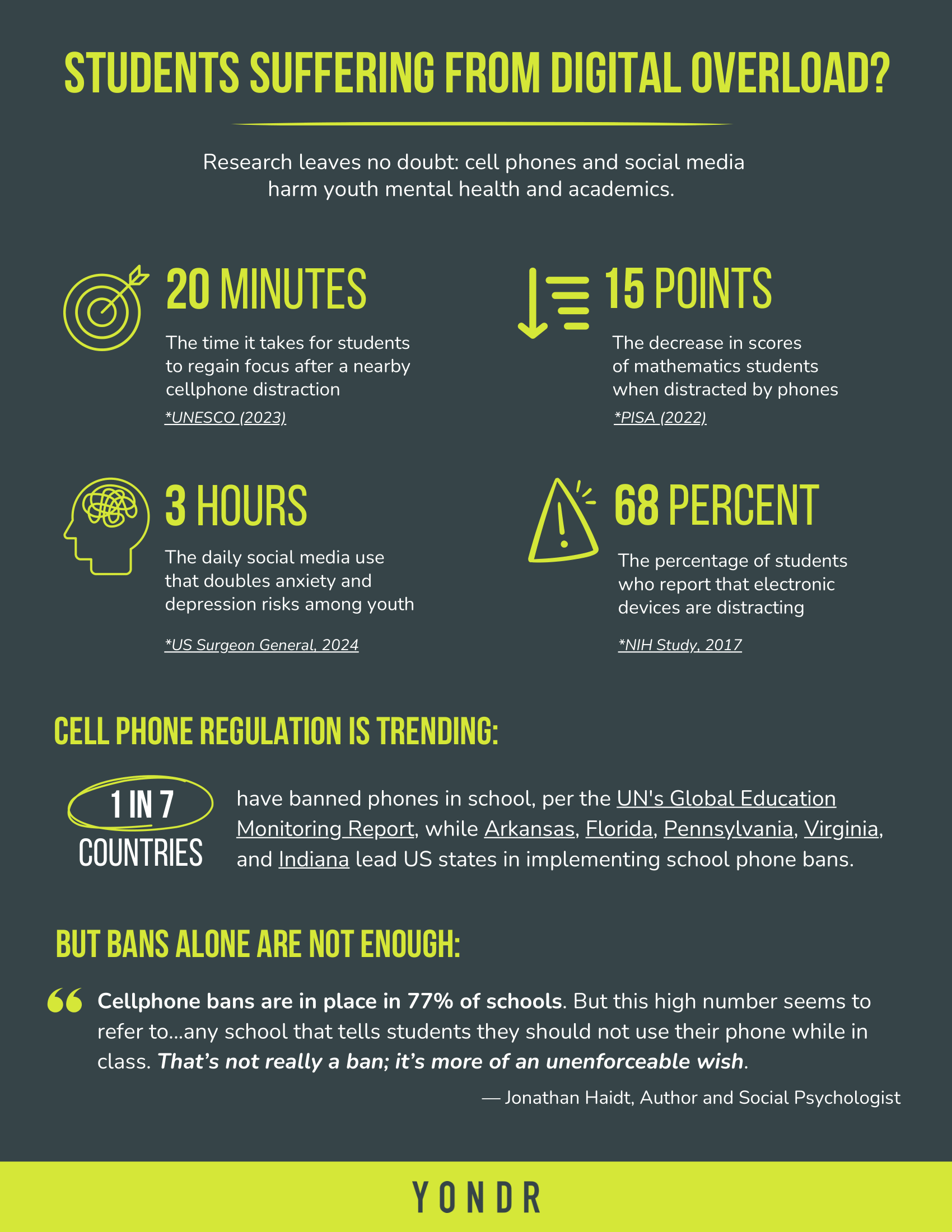
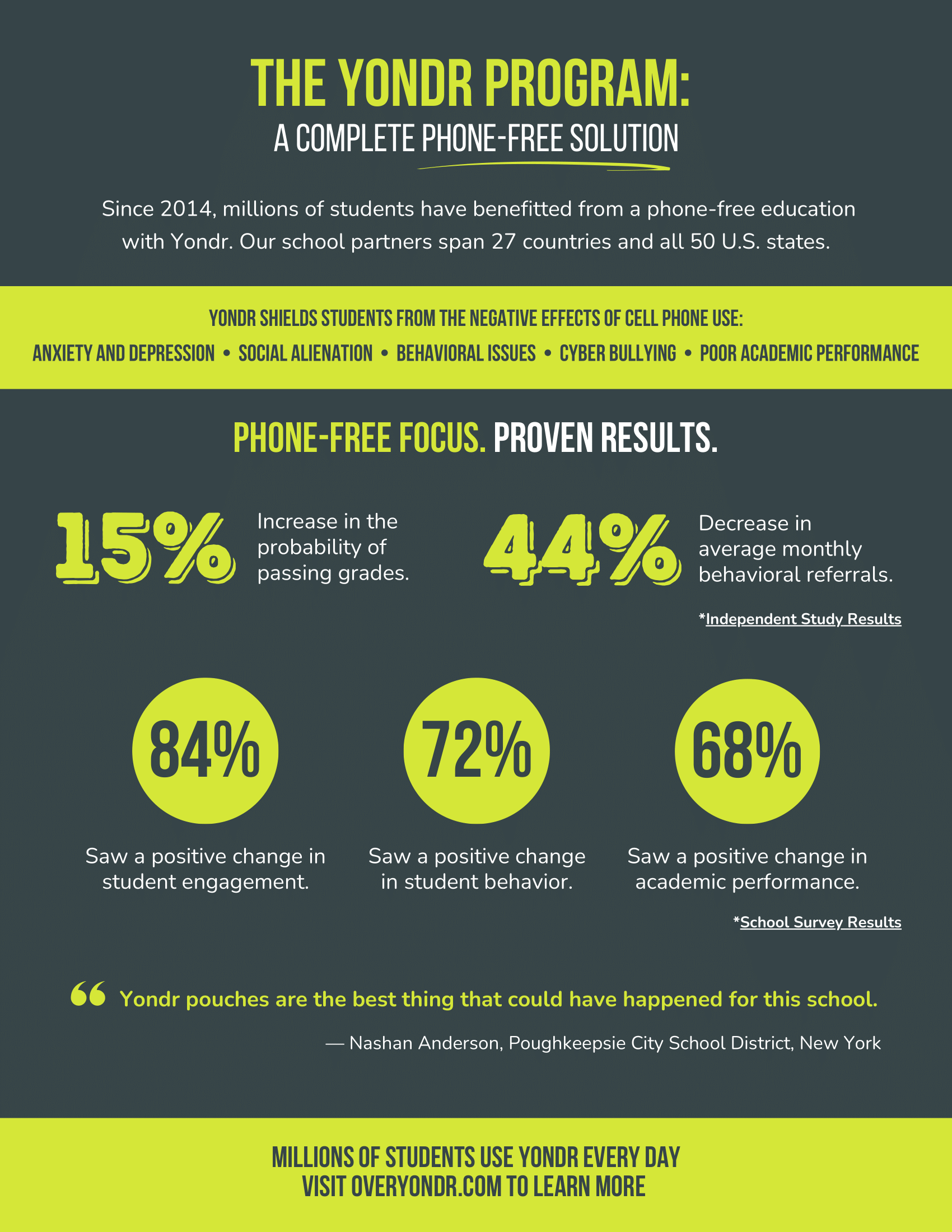
Middletown's Phone-Free Schools: A Statement from Cliff O'Callahan, MD, PhD, FAAP
Dr. O’Callahan of Middlesex Health provided the Middletown Public Schools a statement in support of our phone-free schools. You can find that video linked below.
Yondr
The Yondr Process: Student Arrival & Dismissal
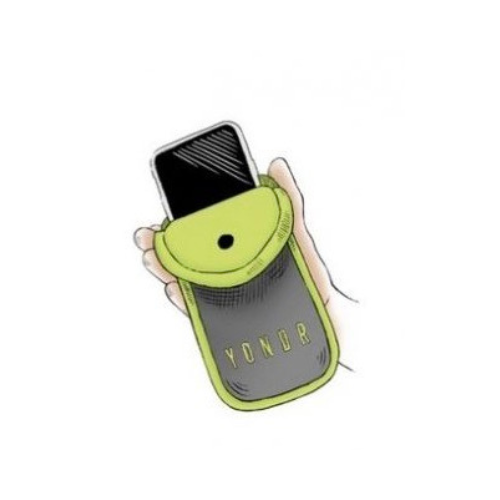
Upon arrival, students turn off phones and place them inside their pouch under staff supervision.

Students close/lock their pouches. Students keep their locked pouches throughout the school day.
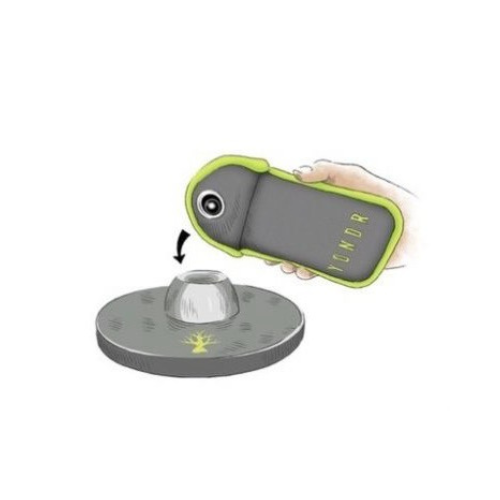
At the end of the school day, students tap the pouches green ring to the magnet to unlock it.Middletown's Phone-Free Schools: A Statement from Cliff O'Callahan, MD, PhD, FAAP
Video: Yondr in Action
Safety + Yondr
In a large scale emergency, you may think that using a cell phone is a good idea. However, it can actually make things more dangerous. It could give away where students are hiding or spread false information quickly; more on that here.
This is why it's crucial to follow the school's emergency plan. You can find more details about our emergency procedures here: https://www.middletownschools.org/o/mps/page/emergency-response-guide
Additional resources on school safety and phone-free schools can be found here:
More on this from Yondr can be found below (or by clicking here for a printable PDF).
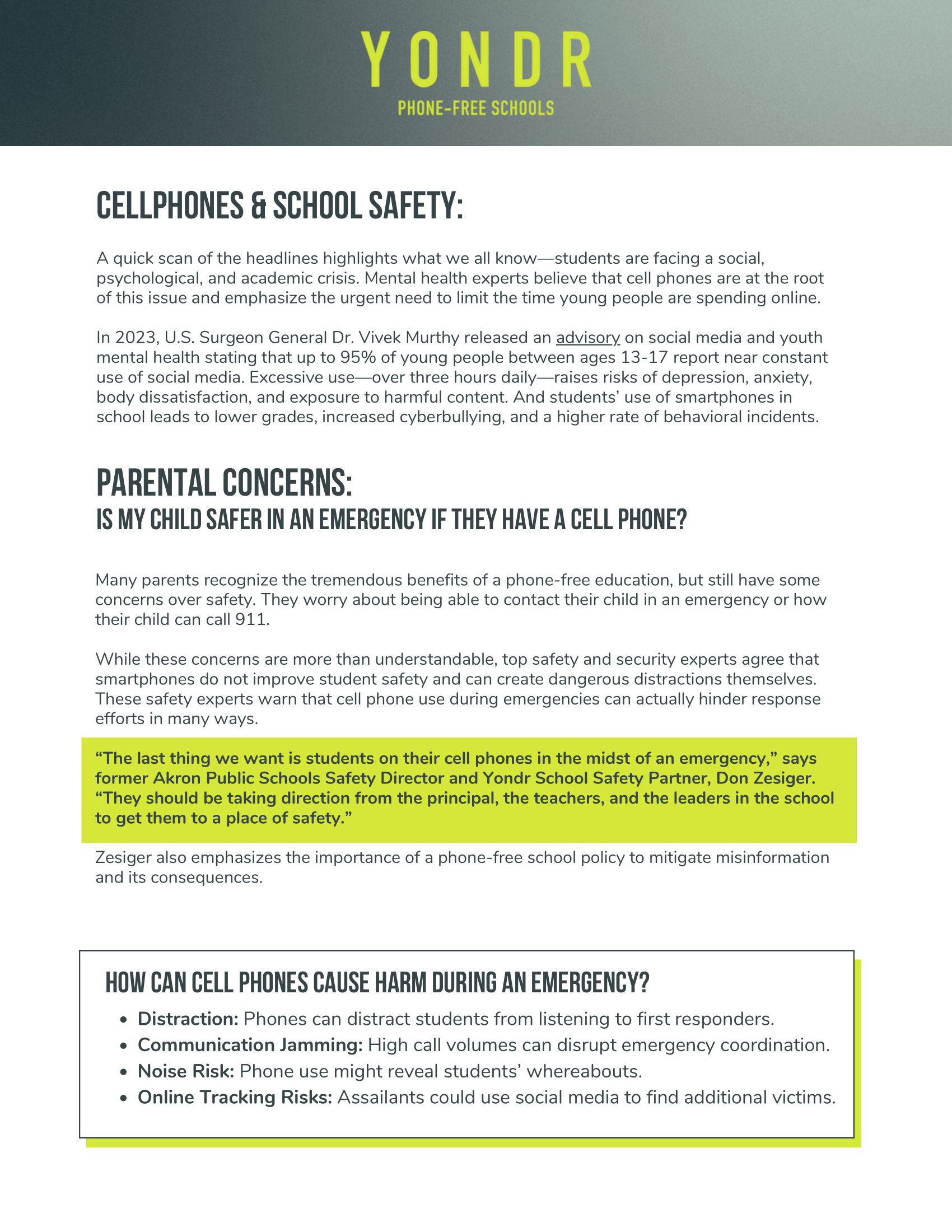
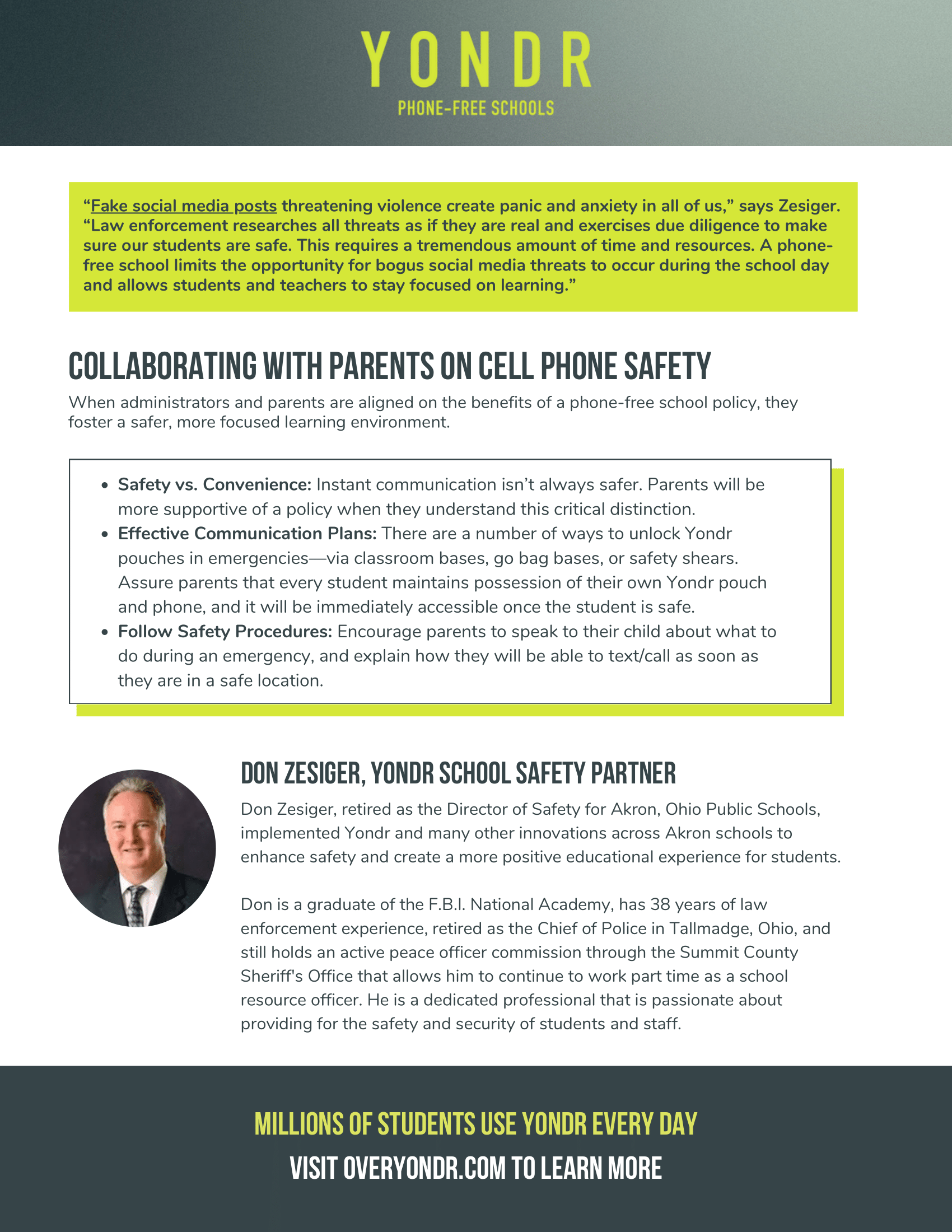
Frequently Asked Questions about Yondr at MHS & Beman
The FAQ below can also be found in a printer-friendly PDF version here:
If the information below does not answer your question(s), please submit your question(s) through this Google Form: Click here to submit your question(s) about Yondr
Policy Implementation and Compliance
Questions about enforcement, monitoring, consequences, and exemptions.
Cost, Budget, and Effectiveness Metrics
Questions on funding, replacement costs, and measuring impact.
Emergency Concerns
Questions about safety during emergencies and parent-student communication.
Educational and Philosophical Concerns
Questions on digital literacy, preparing for life after school, and alternatives.
